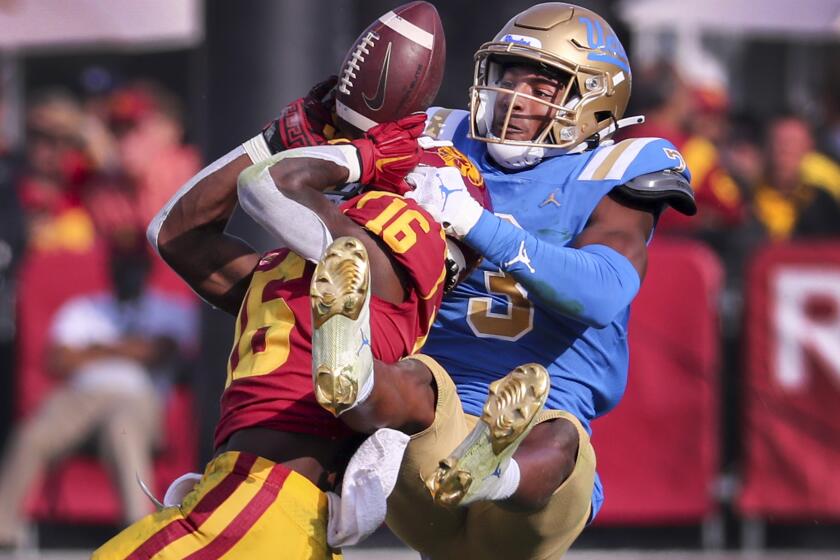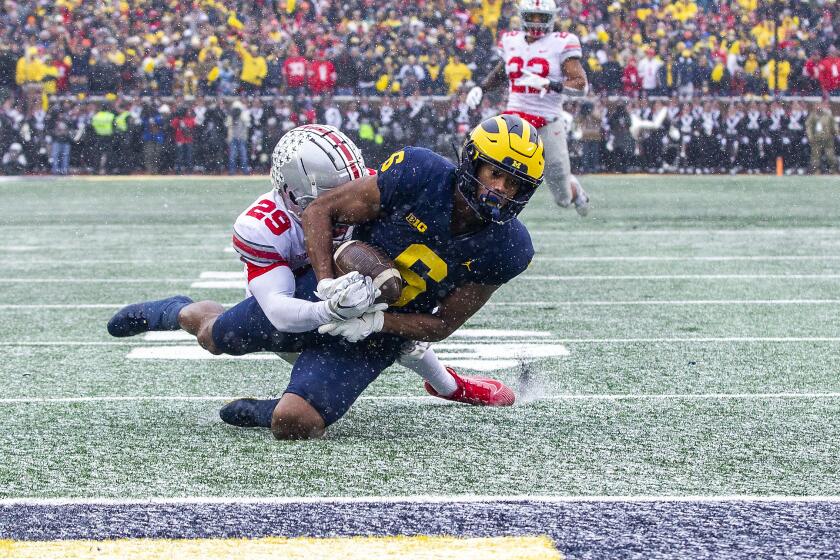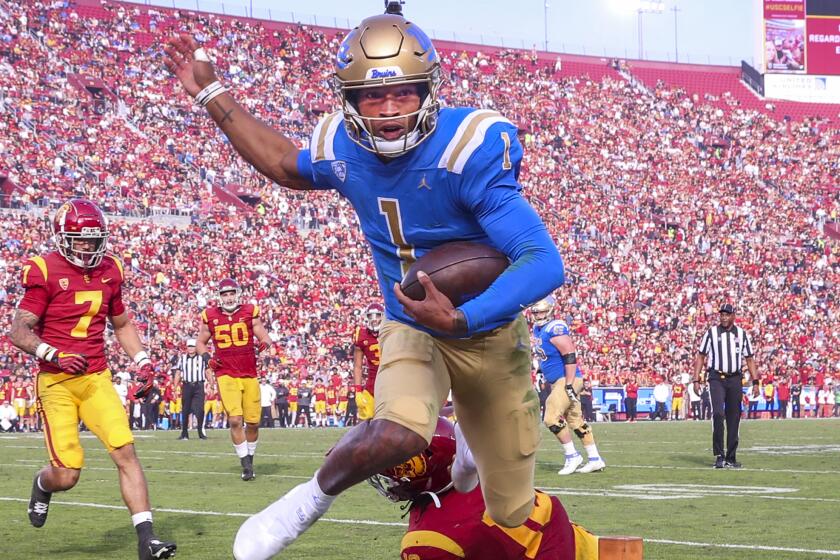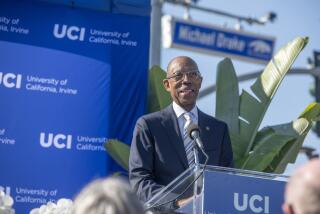Blocking UCLA’s move to Big Ten could have massive fallout for UC regents
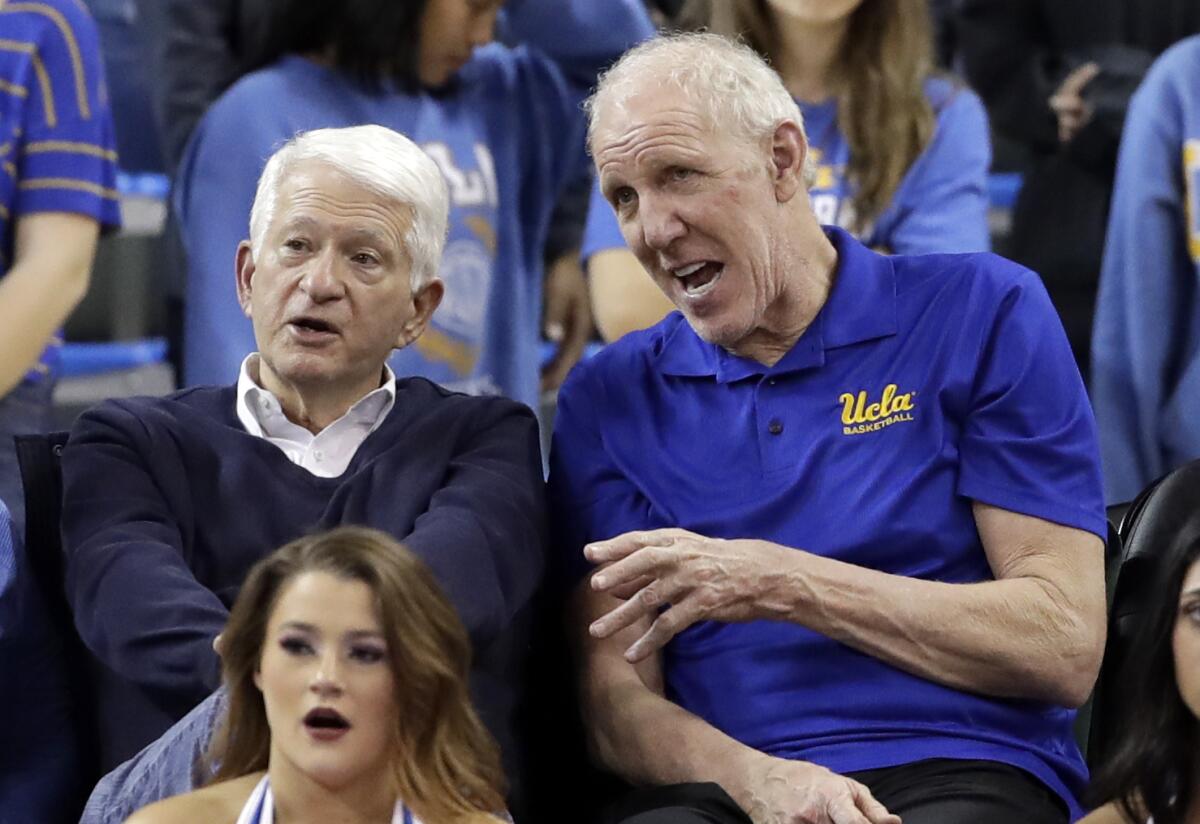
Any attempt by the University of California regents to block UCLA’s move to the Big Ten could endanger the way the governing body does business, according to a former chief of staff of a UC president.
John Sandbrook, who was chief of staff to former UC President Mark Yudof and a longtime UCLA assistant chancellor under Charles Young, told The Los Angeles Times that the regents trying to thwart a business transaction properly made by a university chancellor under his delegation of authority could have a chilling effect on future transactions of any type with a third party for all 10 UC campuses.
“Other members of the Board of Regents need to stop and think about that for a moment,” said Sandbrook, who attended more than 100 regents meetings and wrote dozens of agenda items for the board each year from 1974 to his retirement from the UC in 2010.
Two regents told The Times on Wednesday that they believed their governing body retained the authority to prevent UCLA from leaving the Pac-12 in 2024, though they stopped short of saying that authority would be exercised.
“All options are on the table,” regent John Perez said.
Asked whether he favored scrapping the deal, board chair Richard Leib told The Times it was “premature” to make that decision or evaluate whether other regents would support taking steps to block UCLA’s move to the Big Ten. Although several regents voiced concerns about the impact on the health and academic performance of athletes because of longer travel times, Leib said they could be mitigated. The use of more charter flights, for instance, would be less strenuous than commercial flights, he said.
Some regents said during Wednesday’s meeting that their objection was lack of notice about UCLA’s change in conference affiliation and that they favored proposed new rules to require more communication.
The majority of the regents, along with Gov. Gavin Newsom, have expressed concerns about how UCLA’s move — alongside crosstown rival USC — could financially wallop UC Berkeley while also increasing the strain on UCLA athletes because of the travel burden associated with competing in a conference spanning one coast to the other.
University of California system leaders proposed new rules that may limit campuses from making major athletics contract decisions on their own.
When UCLA announced its intentions to bolt for the Big Ten at the end of June, Chancellor Gene Block and athletic director Martin Jarmond touted the move’s ability to fortify their athletic department amid a rapidly changing college sports landscape. The move would come with huge financial benefits, expand the school’s recruiting base and provide a level of prestige that continuing membership in the Pac-12 would not match.
Should the regents rescind UCLA’s defection, Sandbrook said, he wondered if the Big Ten could sue them for interfering with their new multibillion-dollar media contract that was agreed upon with the understanding that UCLA would soon be a member of the conference.
The debate over UCLA’s ability to unilaterally switch conferences centers on a 1991 UC system policy that delegated authority to campus chancellors to execute their own contracts, including intercollegiate athletic agreements. Charlie Robinson, general counsel for the UC system, said during the regents’ meeting Wednesday that the board chairman could supersede that authority.
“One mechanism would be for the [regent] board chair to say, ‘I’m directing you, in this instance, to stand down,’ ” Robinson said, “and the board will be exercising authority in this area.”
To protect itself from similar quandaries in the future, UC system leadership has proposed new rules that could limit campuses from making major decisions involving athletics contracts on their own. The regents are expected to vote on the proposal at their September meeting in San Diego.
Sandbrook said he could recall only two instances in which the UC regents overturned or modified actions taken by a university chancellor or president under existing delegations of authority.
What should UCLA and USC athletes and fans expect in the Big Ten? Here’s everything you need to know but were afraid to ask.
In 1970, the board of regents reversed UCLA Chancellor Charles Young’s decision to rehire Angela Davis as an acting assistant professor of philosophy after she had identified herself as a member of the Communist Party.
In 1996, the board of regents informally asked UC President Dick Atkinson to modify his decision to delay, by one year, the implementation of affirmative action-related resolutions.
Sandbrook questioned whether the regents could retroactively rescind Block’s decision that had been communicated to Michael V. Drake, president of the UC system, without inviting chaos.
“If the regents set the precedent that any action taken under delegations of authority can be undone by the board,” Sandbrook said, “any loan agreement for a new campus building, the acceptance of a gift, the naming of a building — all of those matters would then be subject to question.”
USC and UCLA are leaving the Pac-12 for the Big Ten Conference in 2024, the two schools announced Thursday.
More to Read
Go beyond the scoreboard
Get the latest on L.A.'s teams in the daily Sports Report newsletter.
You may occasionally receive promotional content from the Los Angeles Times.

